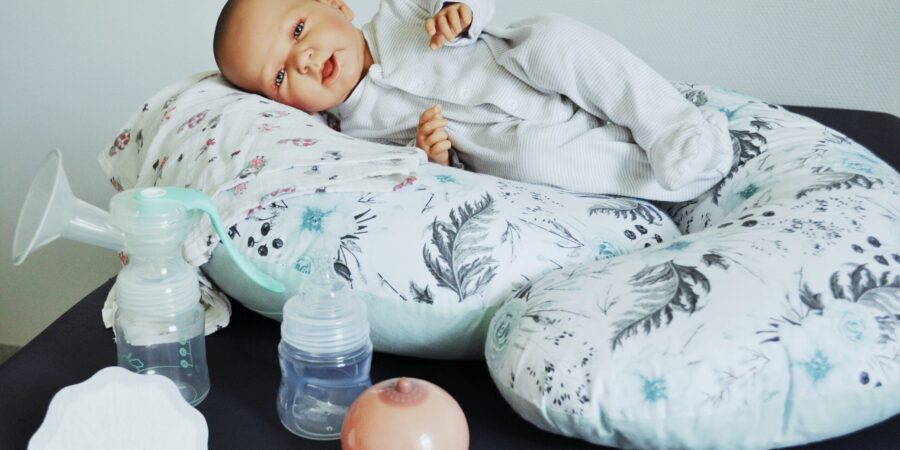



NEWBORN - PRACTICAL ADVICE FOR PARENTS
November 12, 2024
The birth of a child and the first months of its life are a special time for every family. Closeness, building bonds and learning new behaviors require peace and a sense of security. In such moments, parents also need professional knowledge and valuable advice, both in matters related to the child's care and its health and proper development. The Health Promotion Foundation and NZOZ Twój Lekarz invite you to read the GUIDE FOR PARENTS based on the podcast series CO NA TO TWÓJ ELEKARZ.
FEEDING A NEWBORN
If you are breastfeeding, feed on demand – pay attention to hunger signals such as head turning, mouth opening and tongue sticking out. If you are formula feeding, try to stick to the manufacturer’s recommended dosage – however, some babies will require smaller volumes and more frequent feedings
NEONATAL JAUNDICE
Yellowing of the skin resulting from high levels of bilirubin in the blood is a common condition in newborns. Pay attention to the child's lethargy and lack of activity, especially if it is difficult to wake them up for feeding. In the case of severe jaundice, medical consultation and the use of phototherapy may be necessary. A specific symptom that requires immediate diagnostics is discolored stools the color of chalk and urine the color of coca-cola.
REPUTE AND VOMITING
Regurgitation is normal in newborns and infants, but if the child begins to regurgitate more frequently and in larger volumes, it may be necessary to consult a doctor. In this case, it is important to ask for alarm symptoms and assess the child's weight gain.
MONITORING CHILD DEVELOPMENT
In the first weeks of a baby's life, weight measurements are most important. A newborn can lose up to 10% of body weight in the first few days, but should return to birth weight after about 7 days. If you are having trouble gaining weight, talk to your doctor to make sure your baby is developing normally.
CORRECT TEMPERATURE IN THE HOME
For your newborn's comfort, keep your home temperature between 20-22°C and for sleep around 18-20°C. Remember to dress your baby in one more layer than you wear yourself. Don't overdo it by overheating, and a hat is not necessary at home.
FIRST BATH
The water temperature should be around 37°C and the bath should be short (a few minutes). You don't have to use special cosmetics, just water is enough, and if you decide on products, make sure they are suitable for newborns from the first day of life.
CONTACT WITH ANIMALS
In the first weeks, try to limit direct contact between your newborn and animals, such as dogs licking your hands or face; you do not have to forbid animals from being in the same room as your newborn.
GUEST VISITS
In the first week of a newborn's life, try to limit visits. Guests should not experience any symptoms of infection. Immediately after arrival, it is worth encouraging them to wash their hands with soap and water, and you can also suggest wearing disposable masks, especially during the infectious autumn-winter period. Also, if the mother's labor or postpartum period was complicated, it is worth visiting the family after her health improves.
FORMALITIES AFTER THE BIRTH OF A CHILD
Report the birth of your child to the Civil Registry Office within 21 days of delivery, preferably as soon as possible. You can do this online, even from the hospital. You will receive a birth certificate and a PESEL number, which is necessary, for example, to register the child for a clinic and obtain e-referrals.
For more tips for parents, check out our podcast series WHAT DOES YOUR DOCTOR SAY?. We invite you to listen and subscribe to the channel
Who we are
In our work, we are guided by the idea of a family doctor who provides the patient with comprehensive care at all times, not only when they are ill. Our mission is to take care of the health of residents on a daily basis. We provide health education and promote prevention.
Copyright © Wrocław 2021 NZOZ Your Doctor Sp. z o. o. All Rights Reserved.
Website created by KomuKoncept: www.komukoncept.pl






